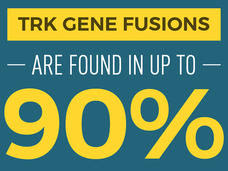
| Clinical Trials | ||
| Updates from the National Cancer Institute | ||
| Clinical Trials News | ||
 | Study Quantifies Impact of NCI-Sponsored Trials on Clinical Cancer Care A new study shows that nearly half of phase 3 cancer clinical trials carried out by the NCI-sponsored SWOG Cancer Research Network, one of five groups in NCI’s National Clinical Trials Network (NCTN), influenced clinical care guidelines or new drug approvals. The study suggests that NCTN trials add value regardless of whether findings are positive or negative. | |
 | Trial Results Highlight Evolution of Treatments For Kids with Neuroblastoma For many children with high-risk neuroblastoma, receiving two separate stem cell transplants is more beneficial than receiving one, according to results of an NCI-supported clinical trial conducted by the Children’s Oncology Group. | |
 | FDA Approves Entrectinib Based on Tumor Genetics Rather Than Cancer Type The Food and Drug Administration (FDA) has approved entrectinib (Rozlytrek) for the treatment of children and adults with tumors bearing an NTRK gene fusion. The approval also covers adults with non-small cell lung cancer harboring a ROS1 gene fusion. Results from four small clinical trials supported the approval. | |
 | Pediatricians’ Offices Can Help Parents Quit Smoking, Study Shows Using a cluster randomized clinical trial design, researchers tested a program that trains pediatricians’ offices to provide smoking cessation treatment to parents during visits with their child’s doctor. The approach is intended to reach adults who are motivated to quit to protect their child’s health. | |
| Clinical Trials Information for Patients and Caregivers | ||
| Scientific Review of Clinical Trials Experts review clinical trial protocols before studies are launched to make sure that they are based on sound science. All clinical trials that are funded by the federal government must go through this type of review. | ||
| Ending Trials Early Most clinical trials run as planned from beginning to end. But sometimes trials are stopped early. This page discusses some of the reasons why clinical trials may be ended early. | ||
| Find NCI-Supported Clinical Trials Use our search form to find a clinical trial or other research study that may be right for you or a loved one. | ||
| NCI-Supported Clinical Trials That Are Recruiting Patients | ||
| CAR T-Cell Therapy for Multiple Myeloma This phase 1 trial will test the safety of genetically engineered T cells in patients with multiple myeloma that has not responded to standard treatment. Doctors will harvest T cells from participating patients and modify them to express a chimeric antigen receptor, or CAR, for a protein commonly found on multiple myeloma cells. The modified cells will also feature a genetic “stop switch” that can be activated by administering a second drug. If severe side effects occur, doctors can activate the switch, which should shut down the CAR T cells and eliminate them from the patient’s body. | ||
| Dual Drug Therapy for Untreated Follicular Lymphoma This phase 2 trial will test whether copanlisib (Aliqopa) combined with rituximab (Rituxan) can slow the growth of follicular lymphoma in patients who have not been previously treated. Copanlisib interrupts several signaling pathways that follicular lymphoma cells rely on to grow, while rituximab attaches to cancerous B cells and signals the immune system to target and destroy the marked cells. Doctors will also try to identify biomarkers associated with response to the treatment. | ||
































No hay comentarios:
Publicar un comentario